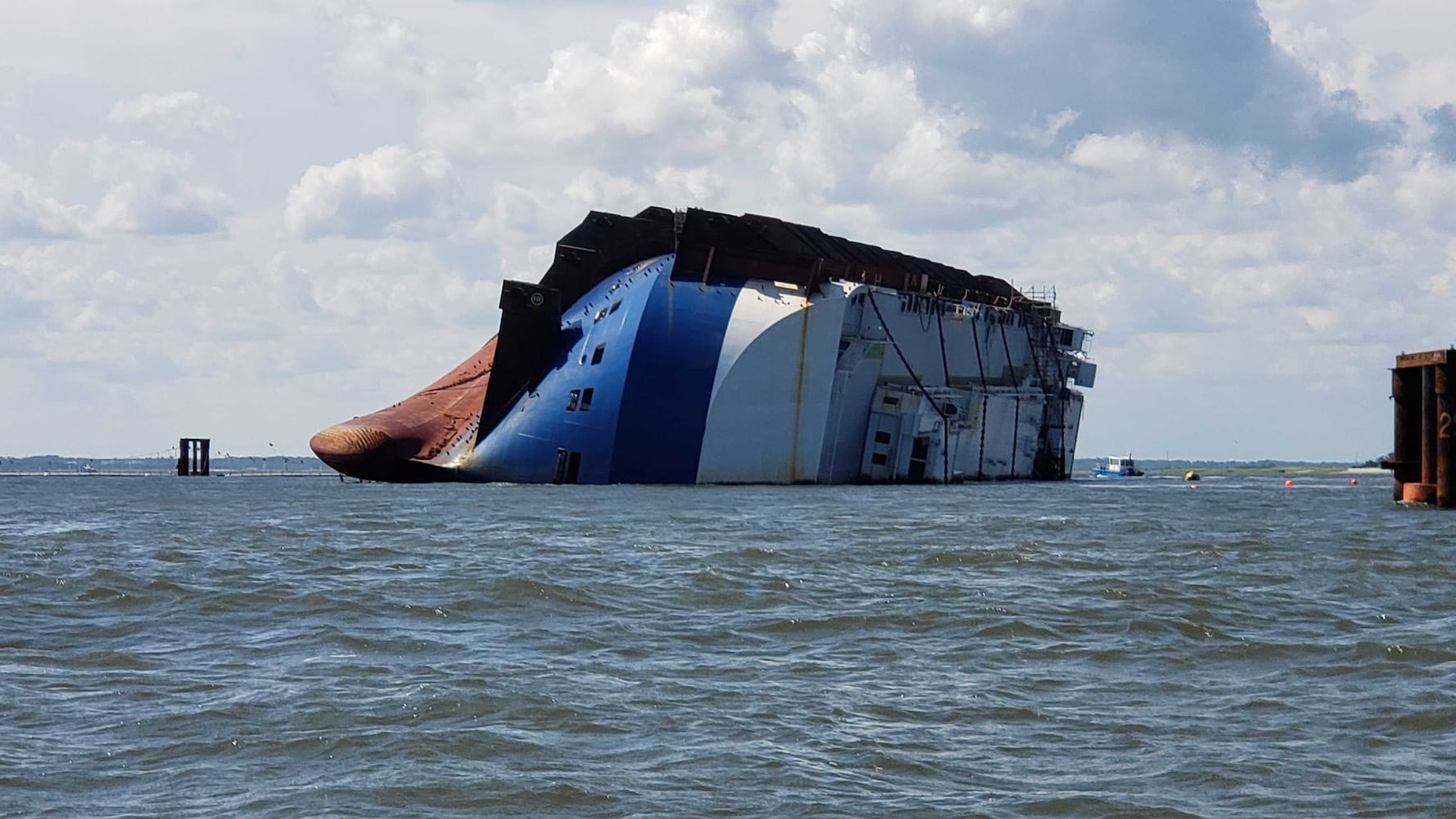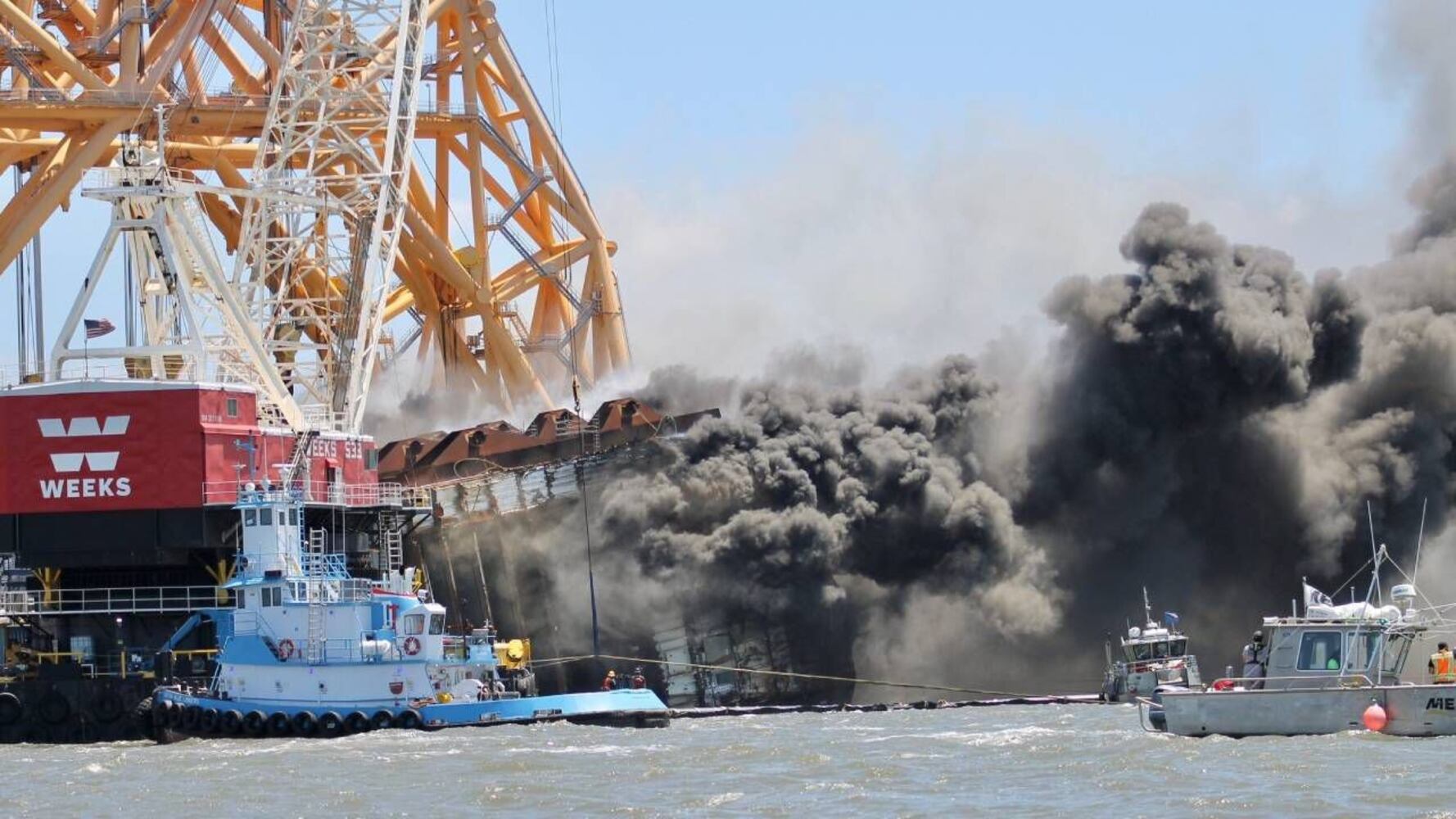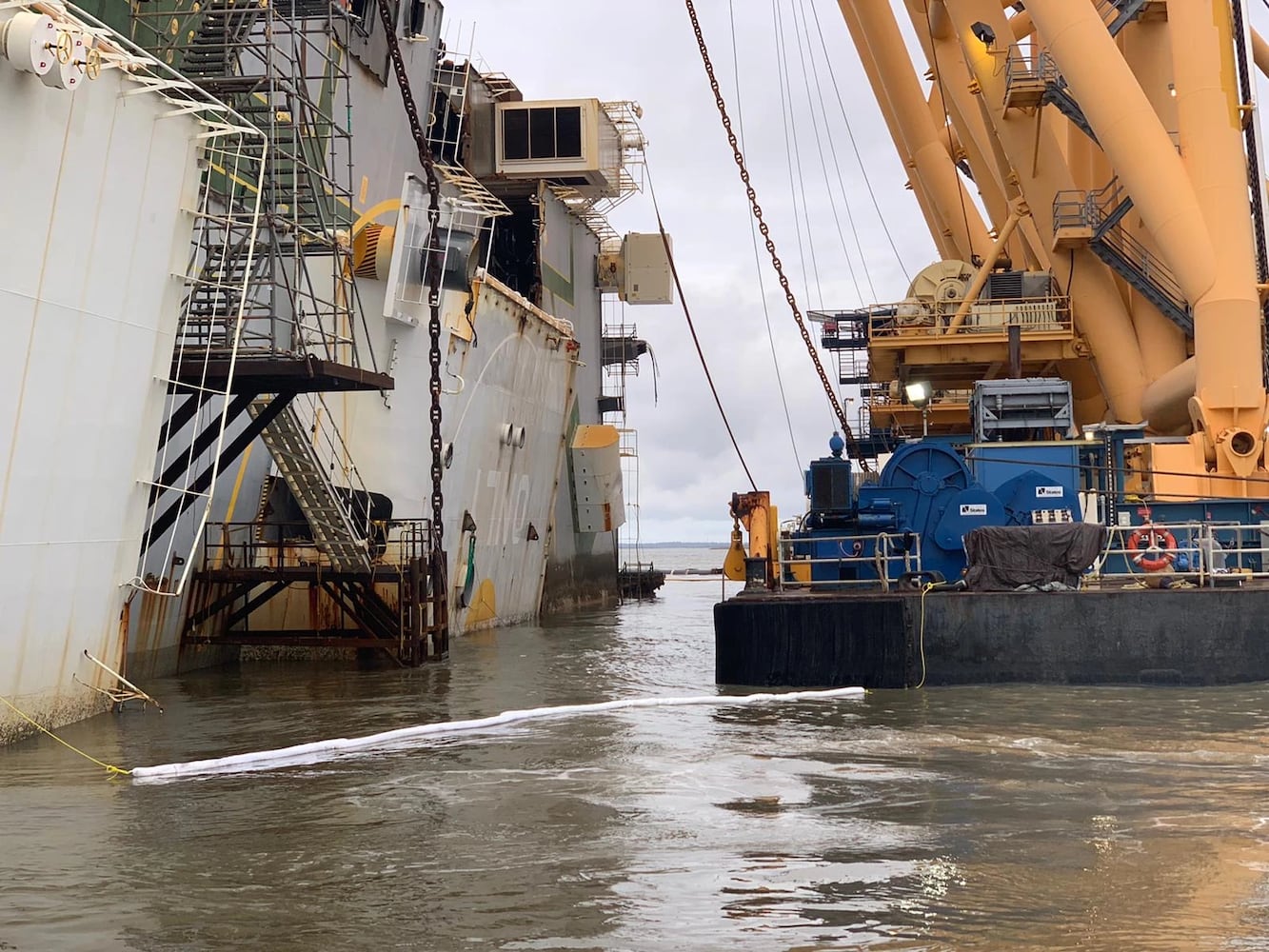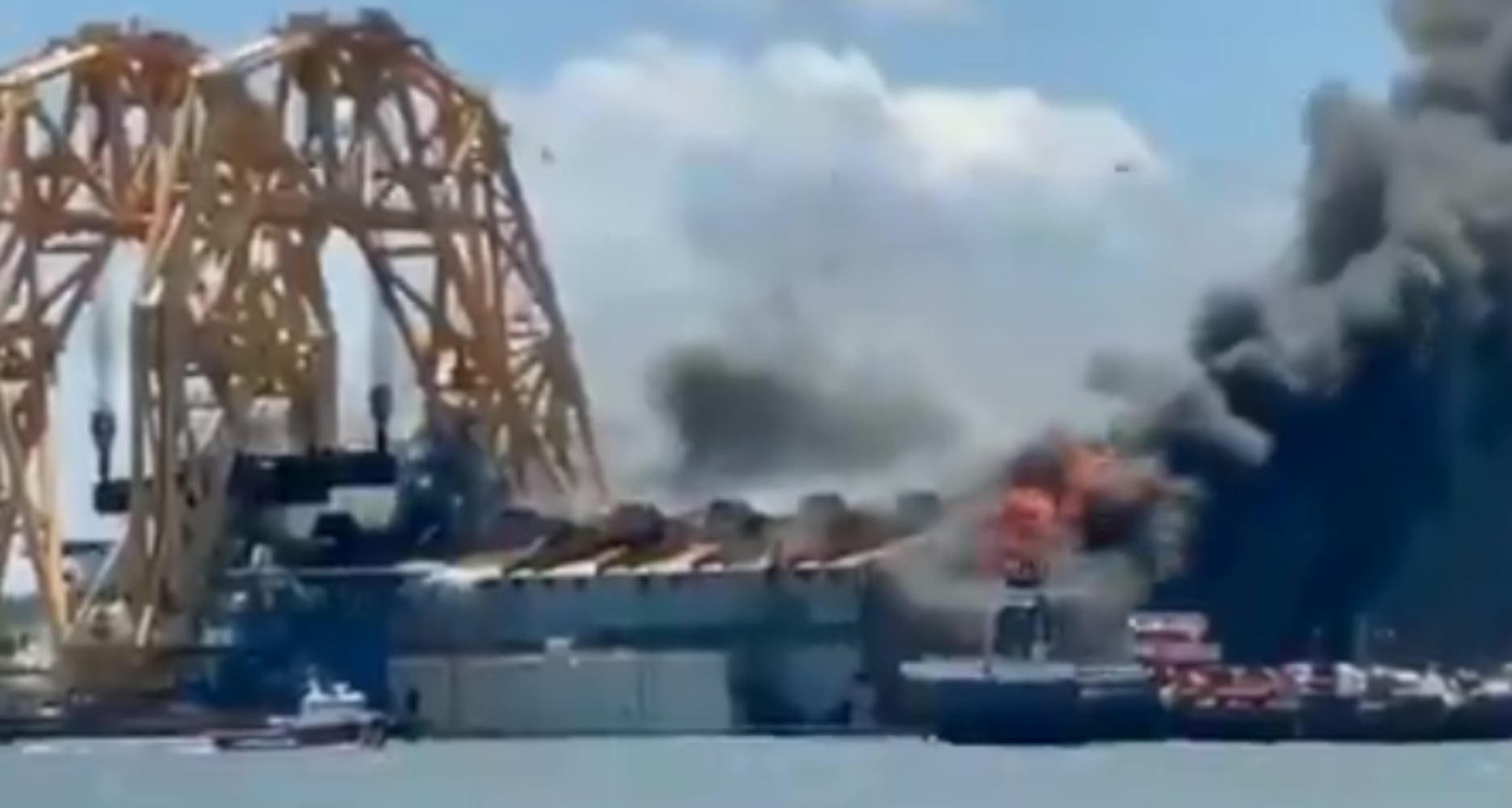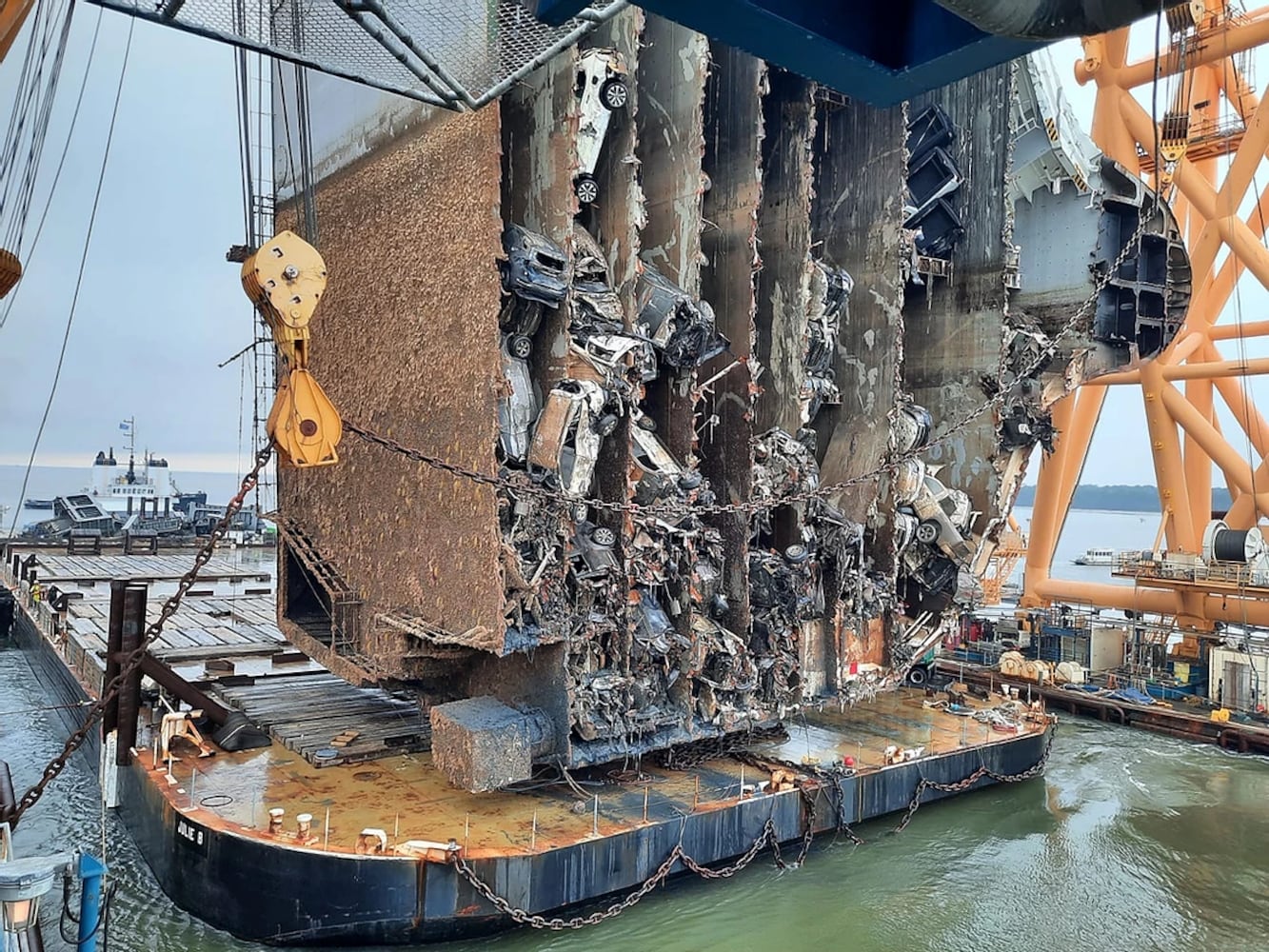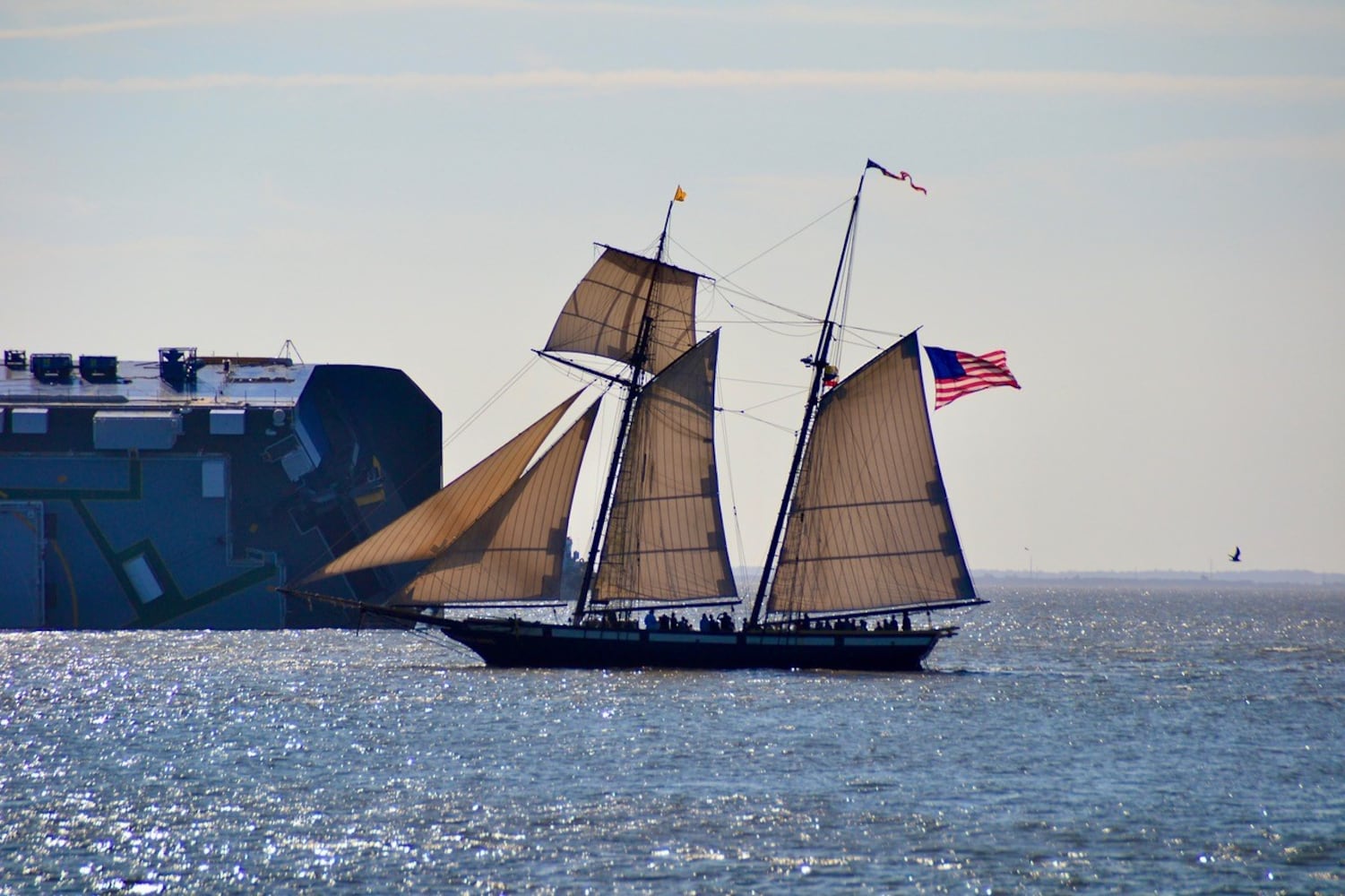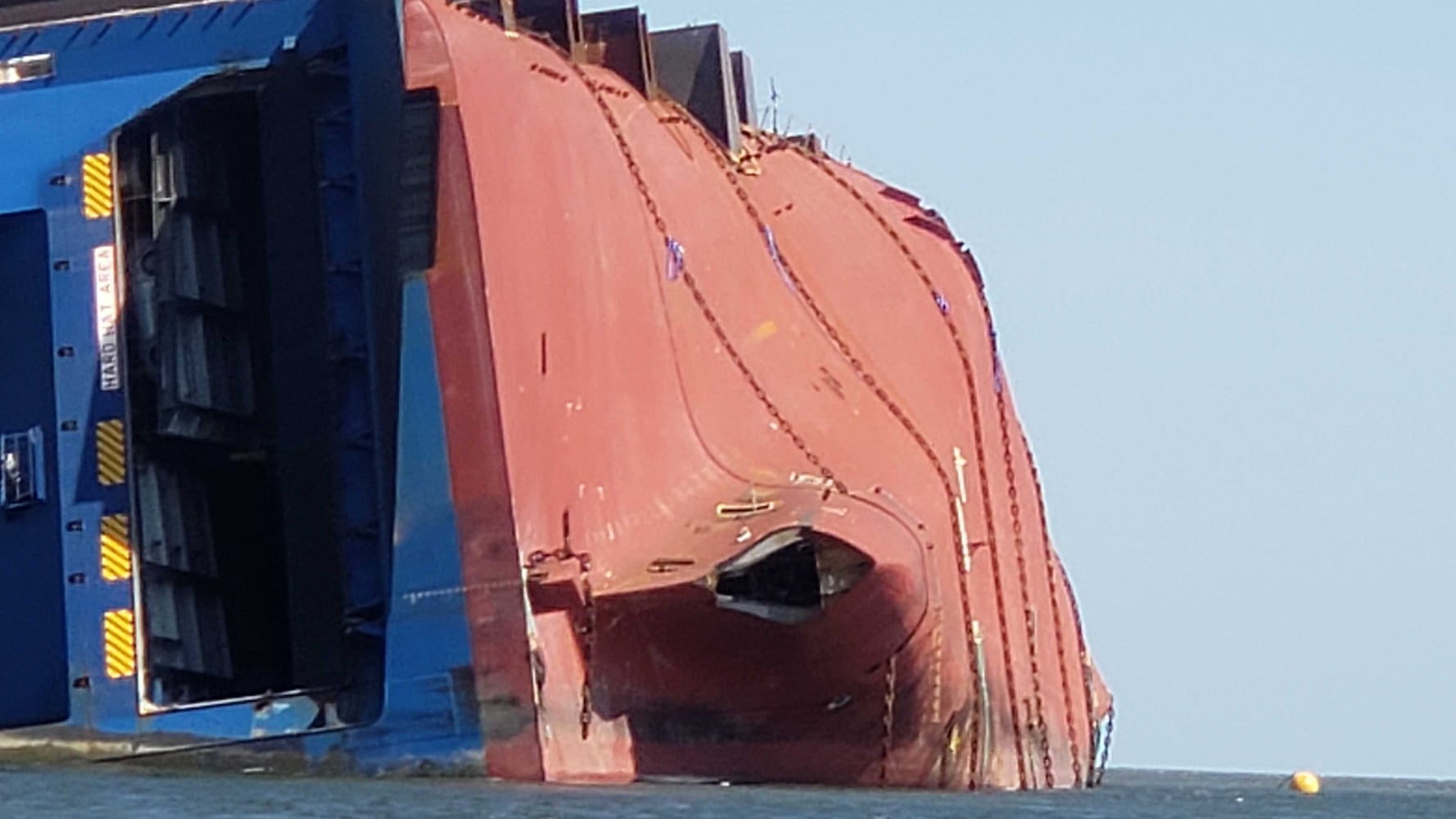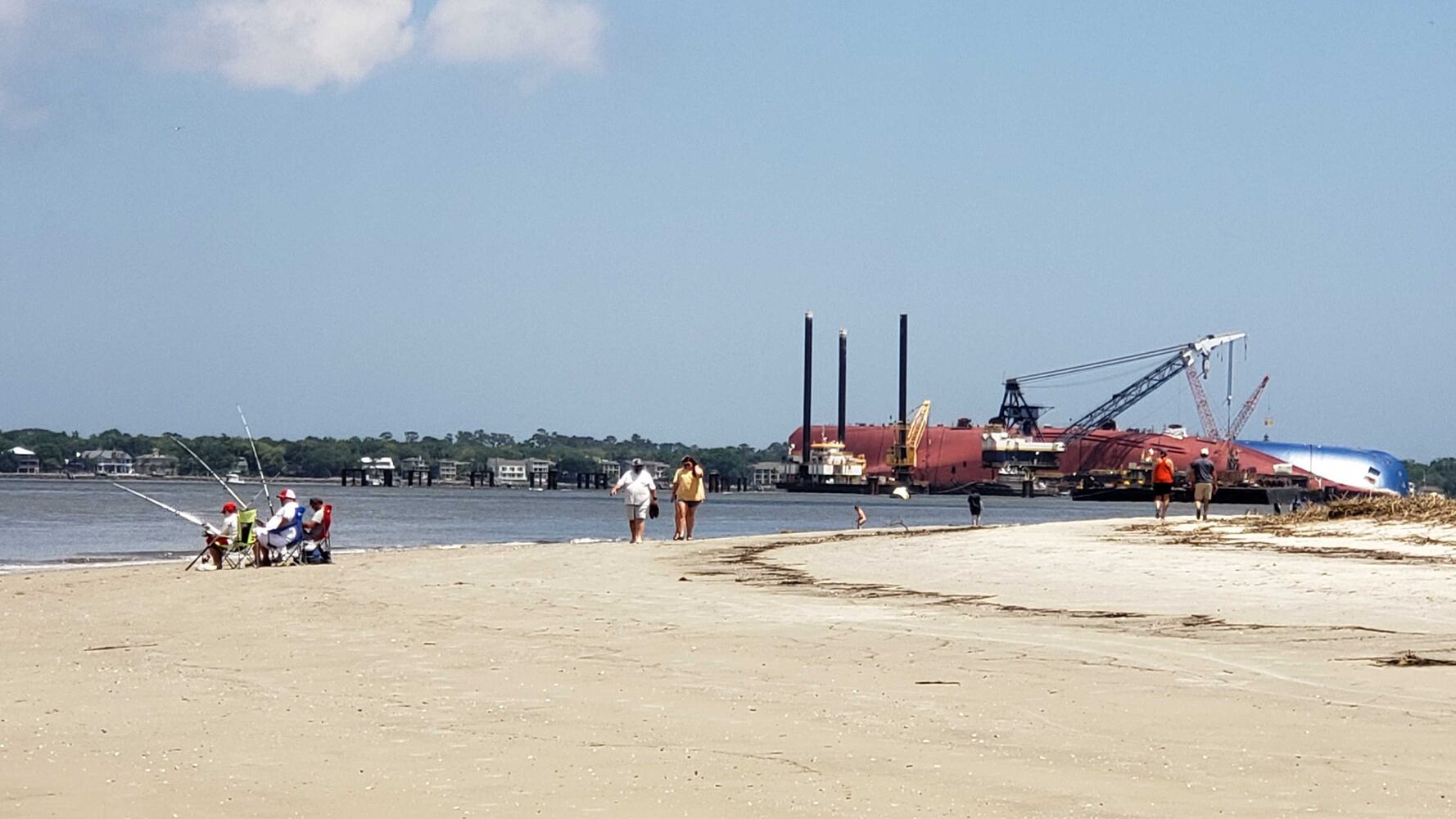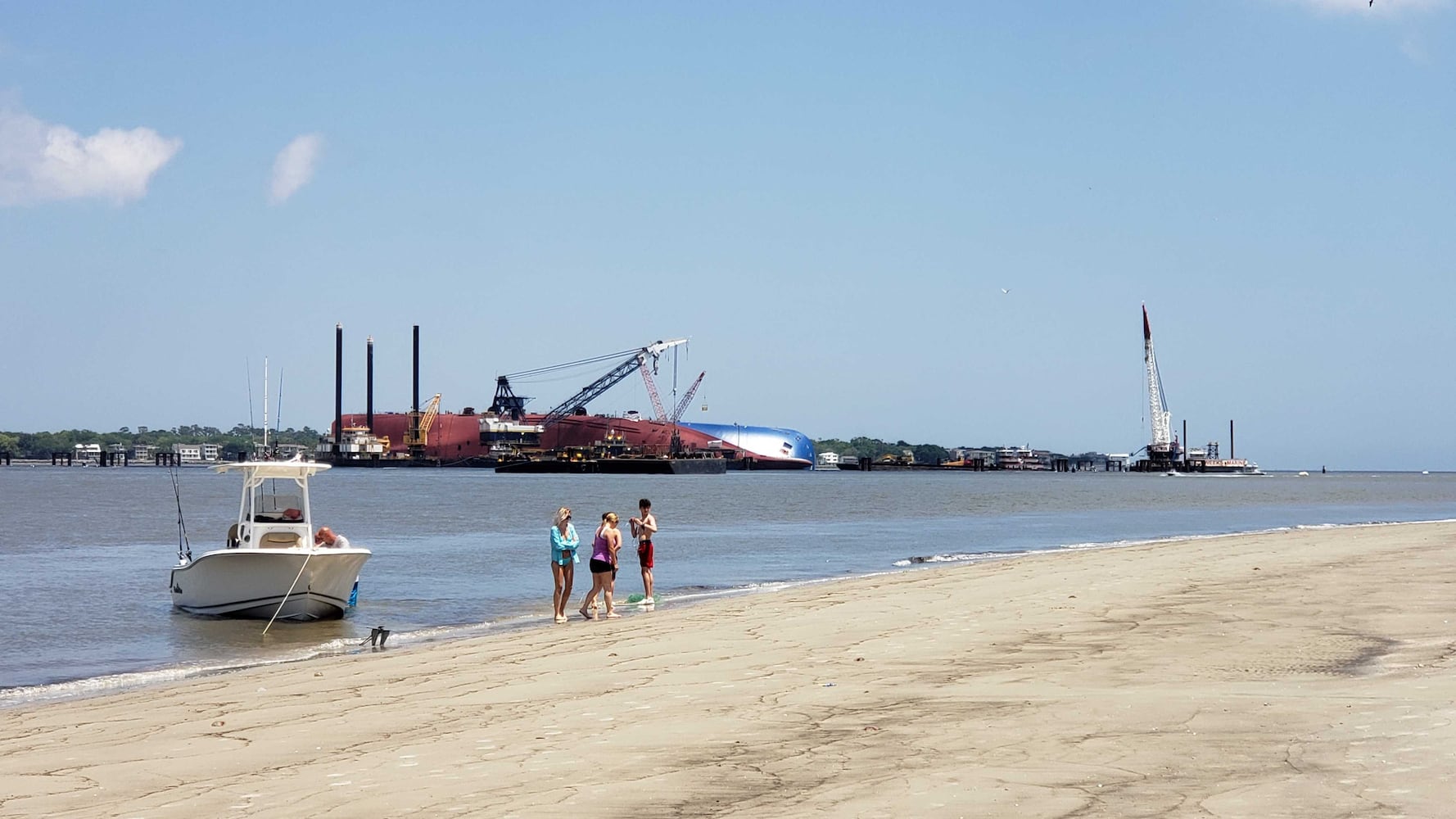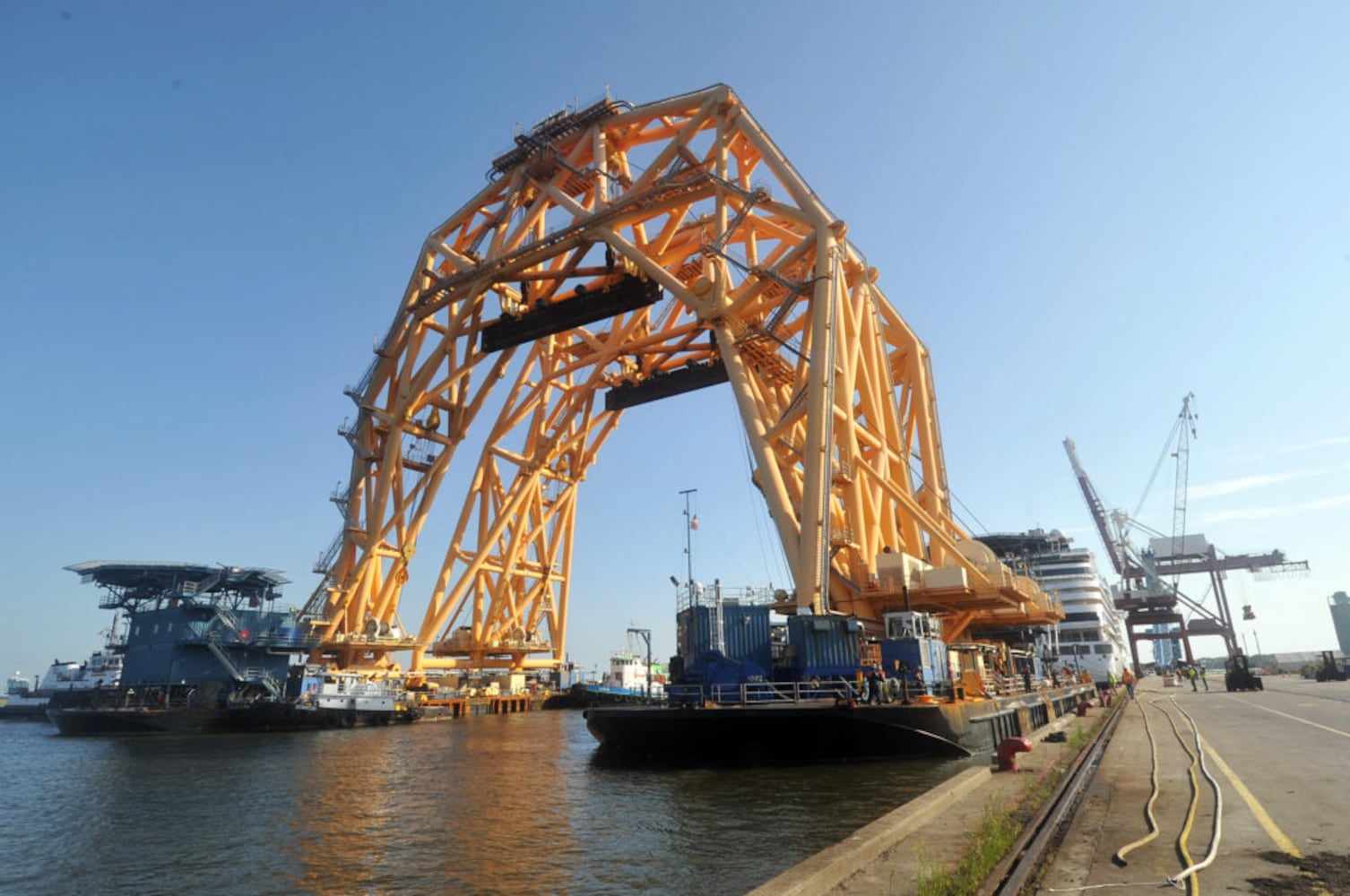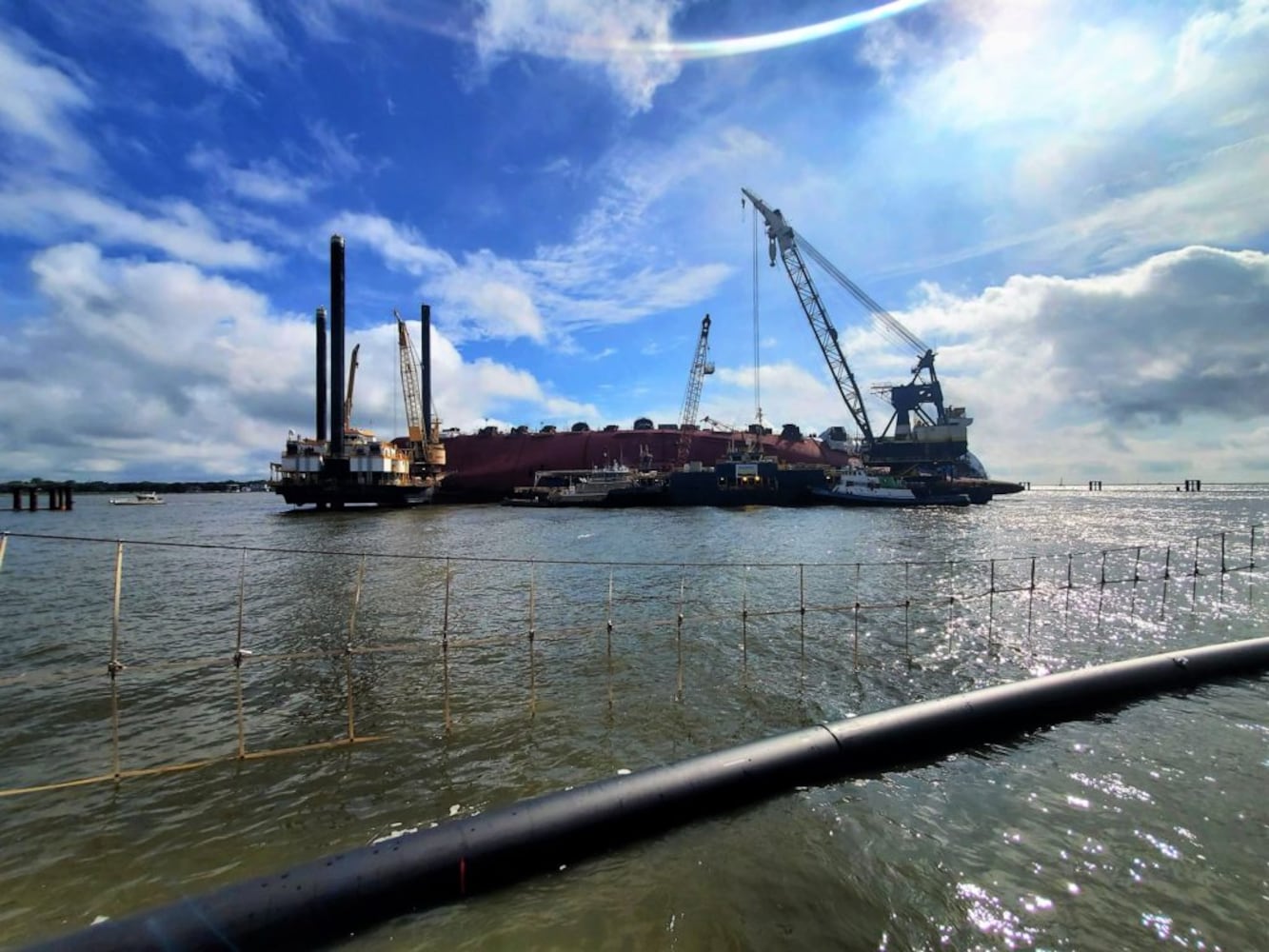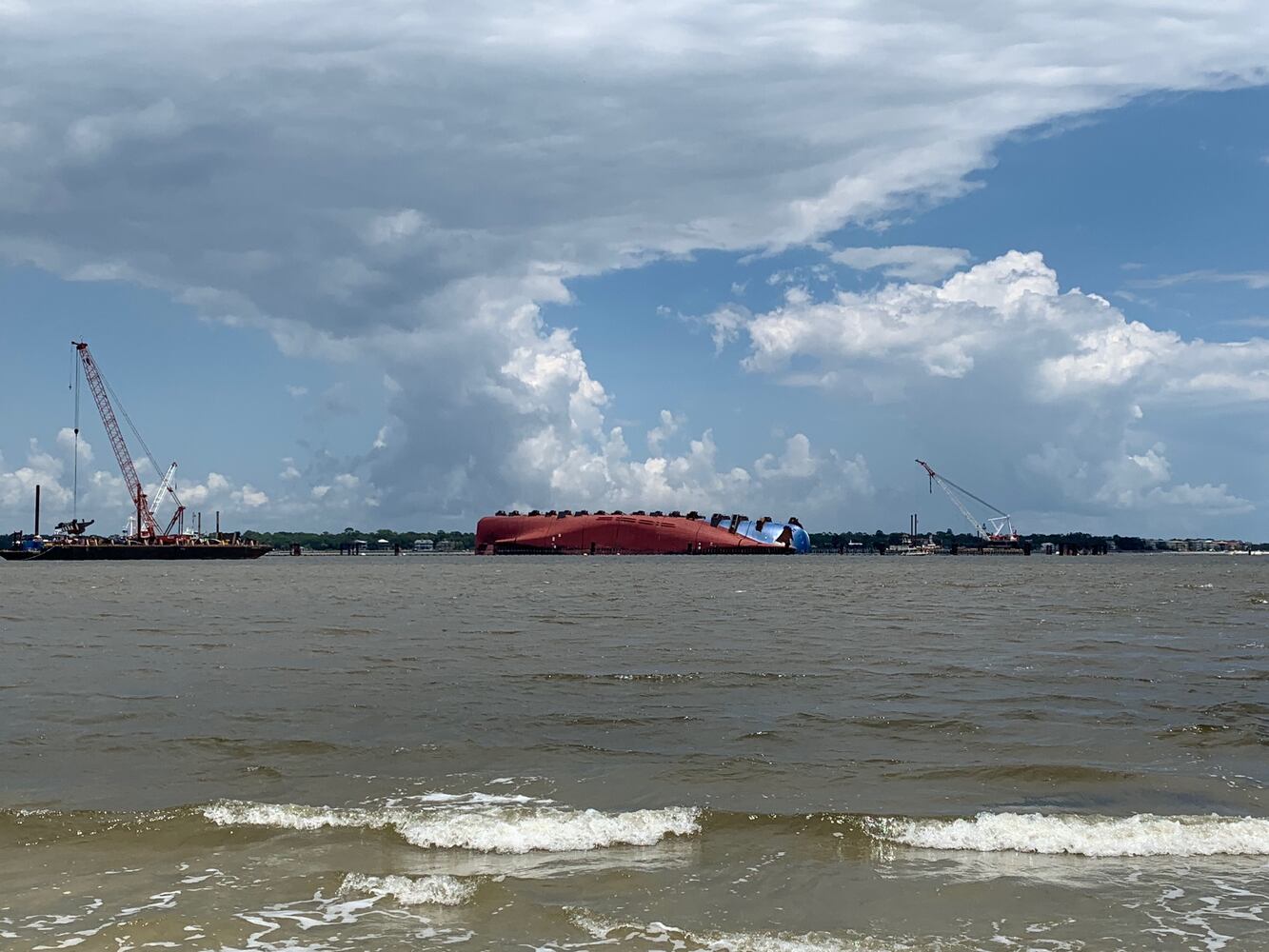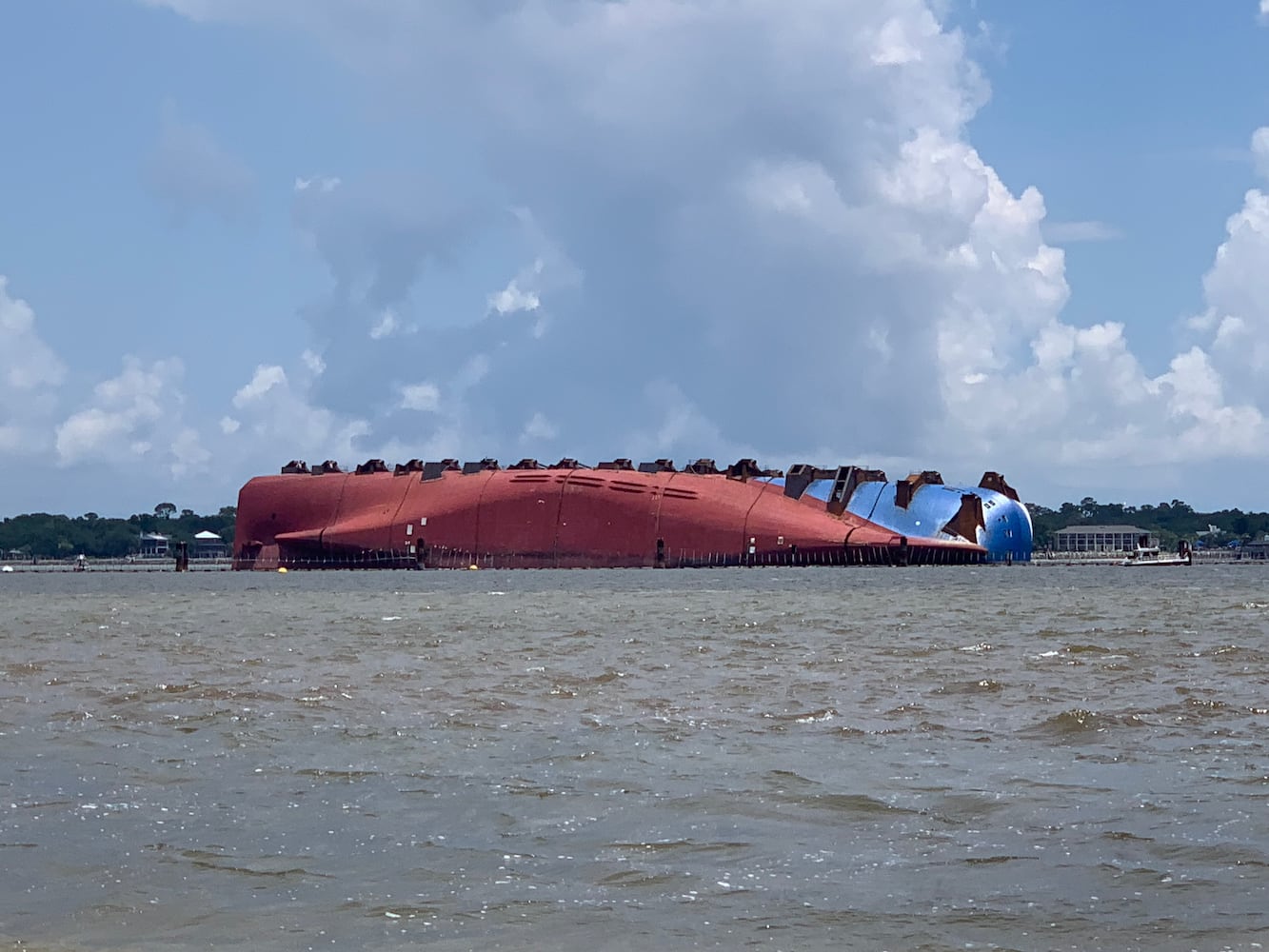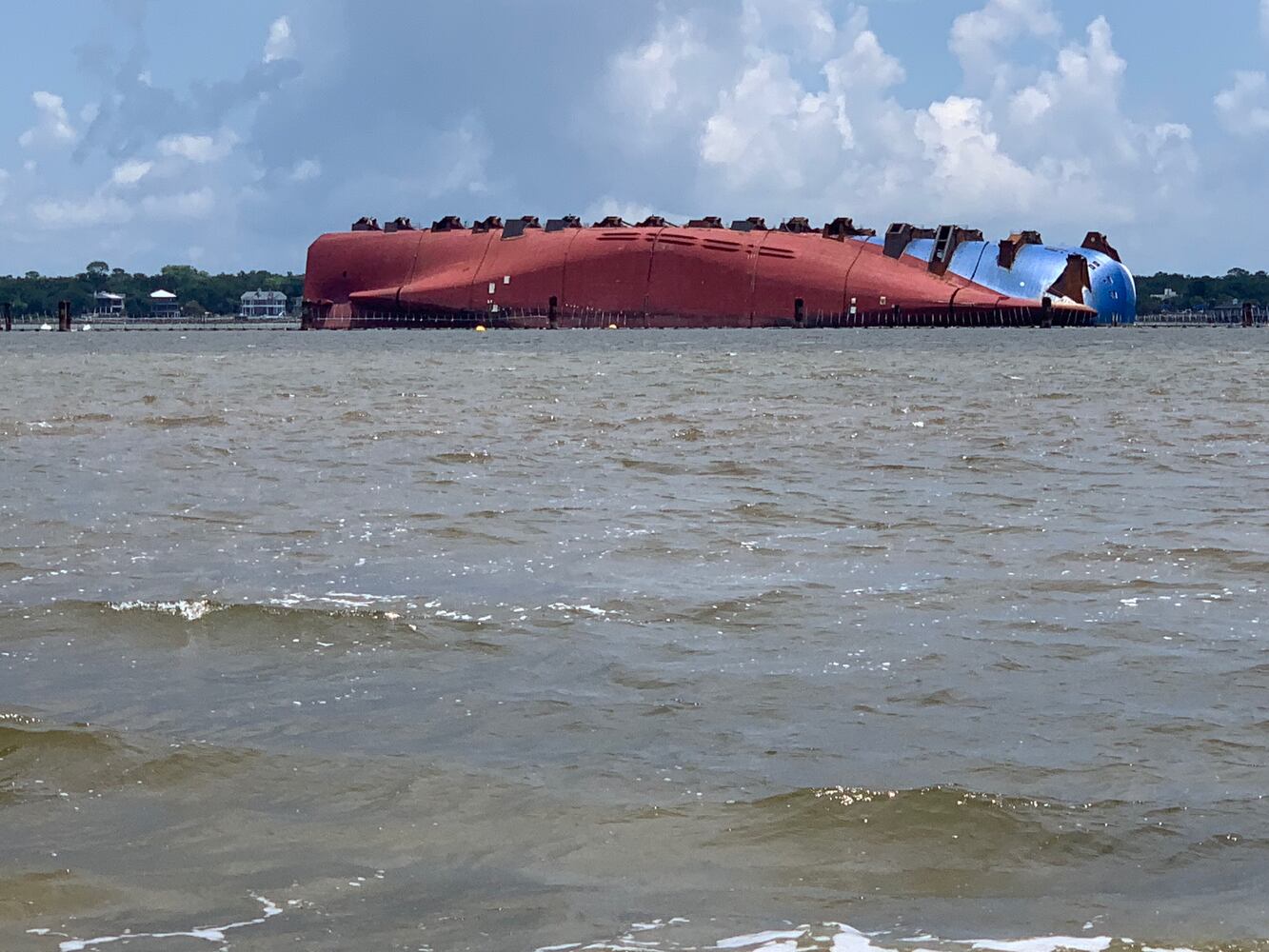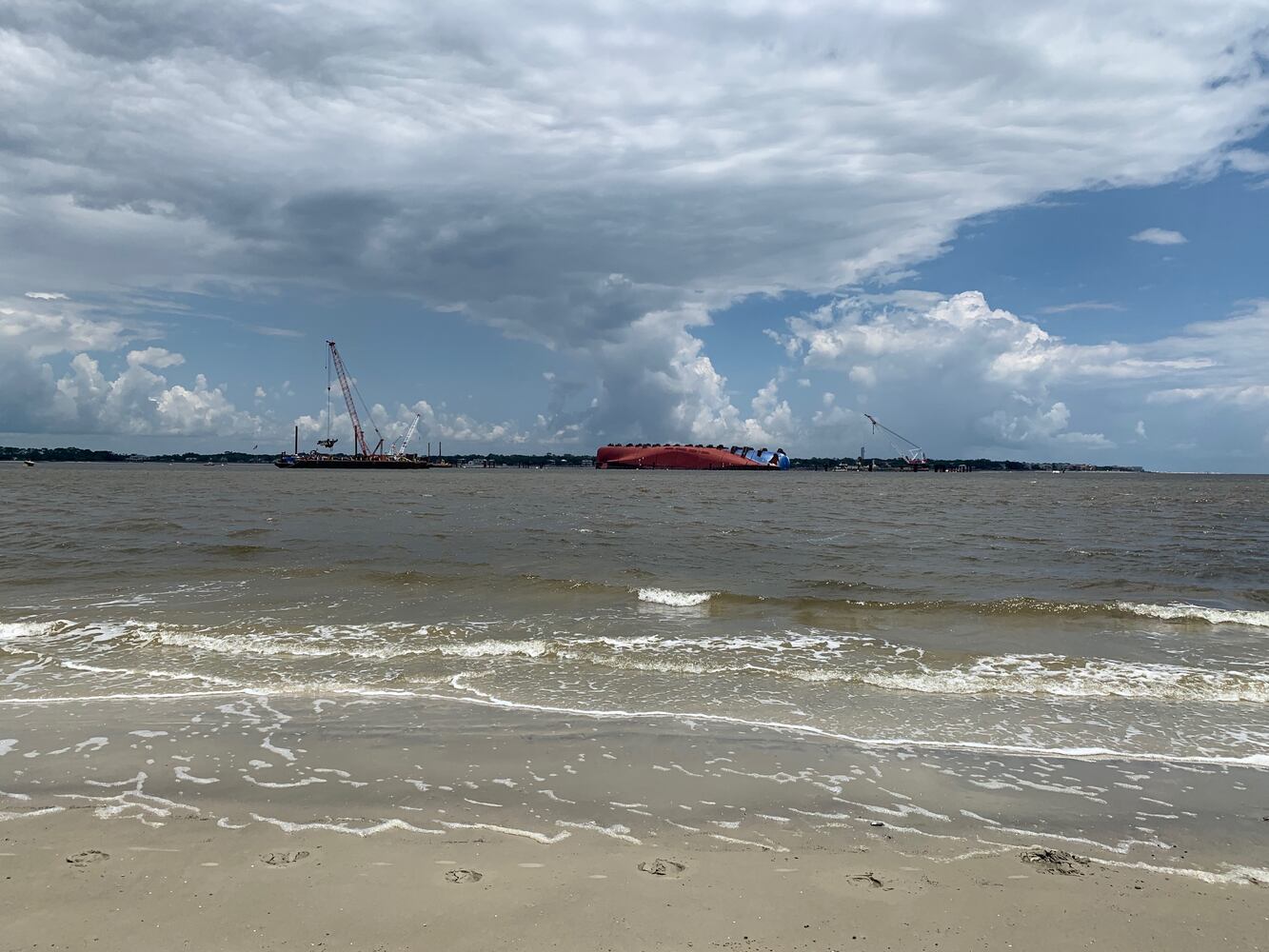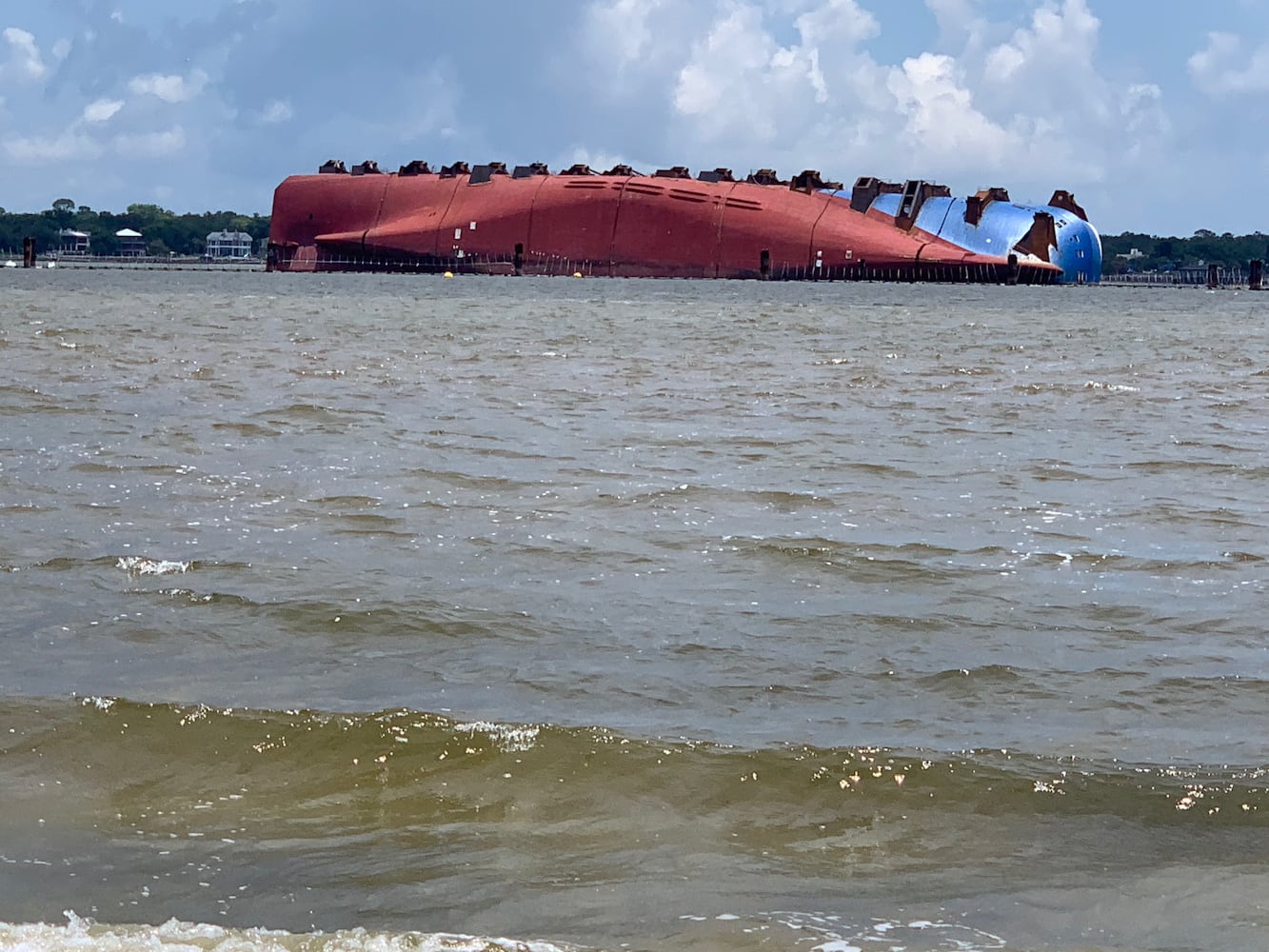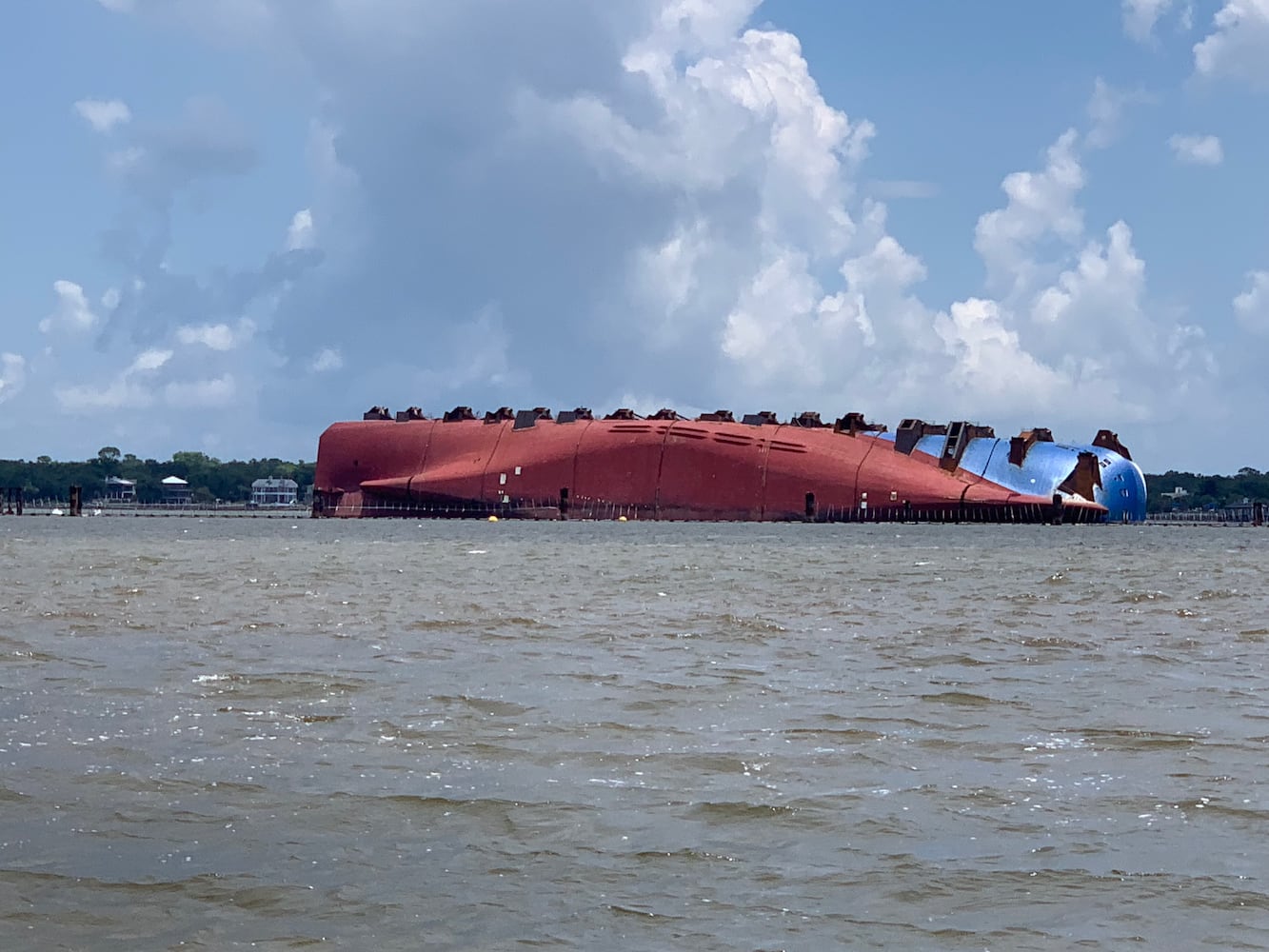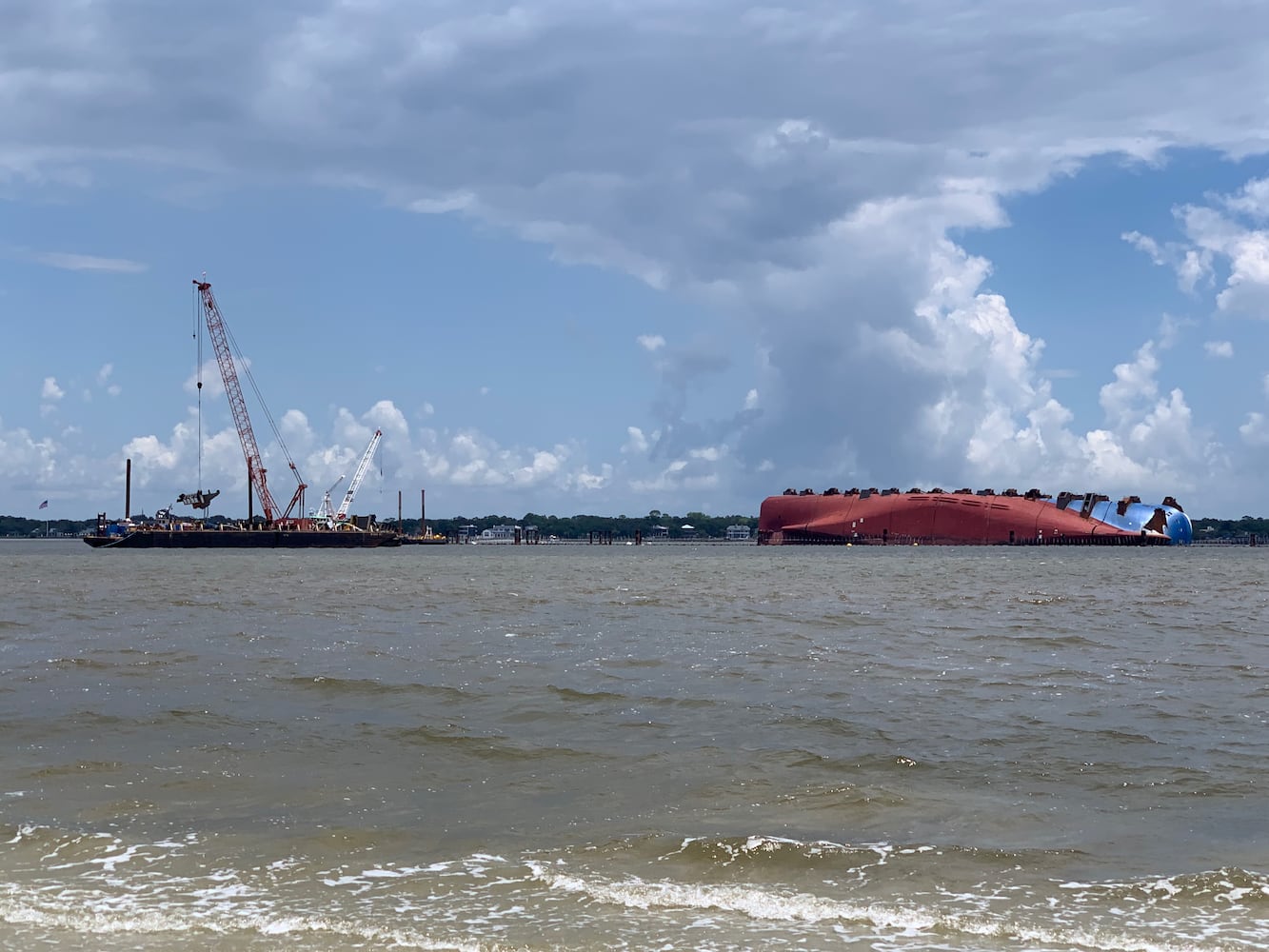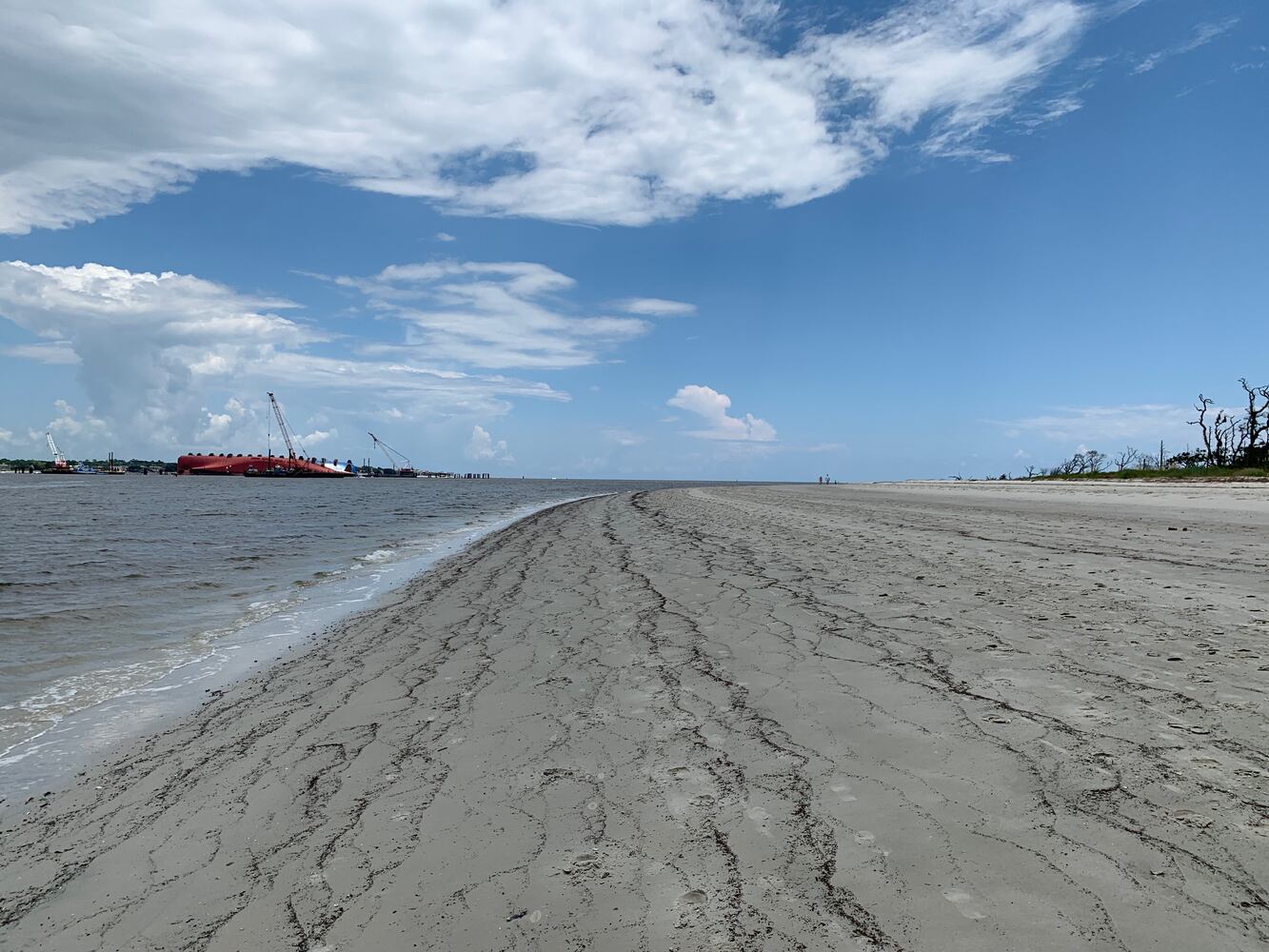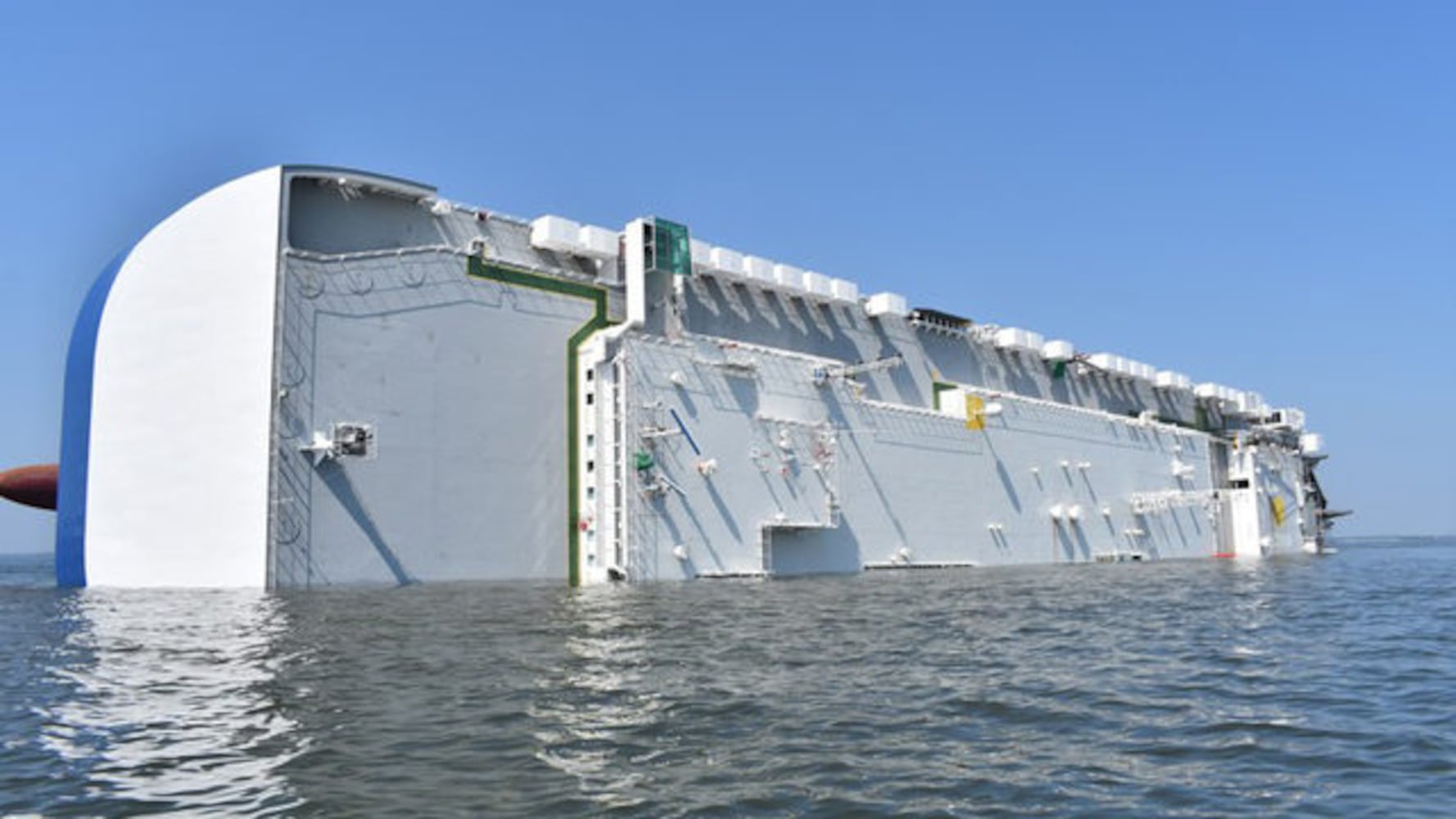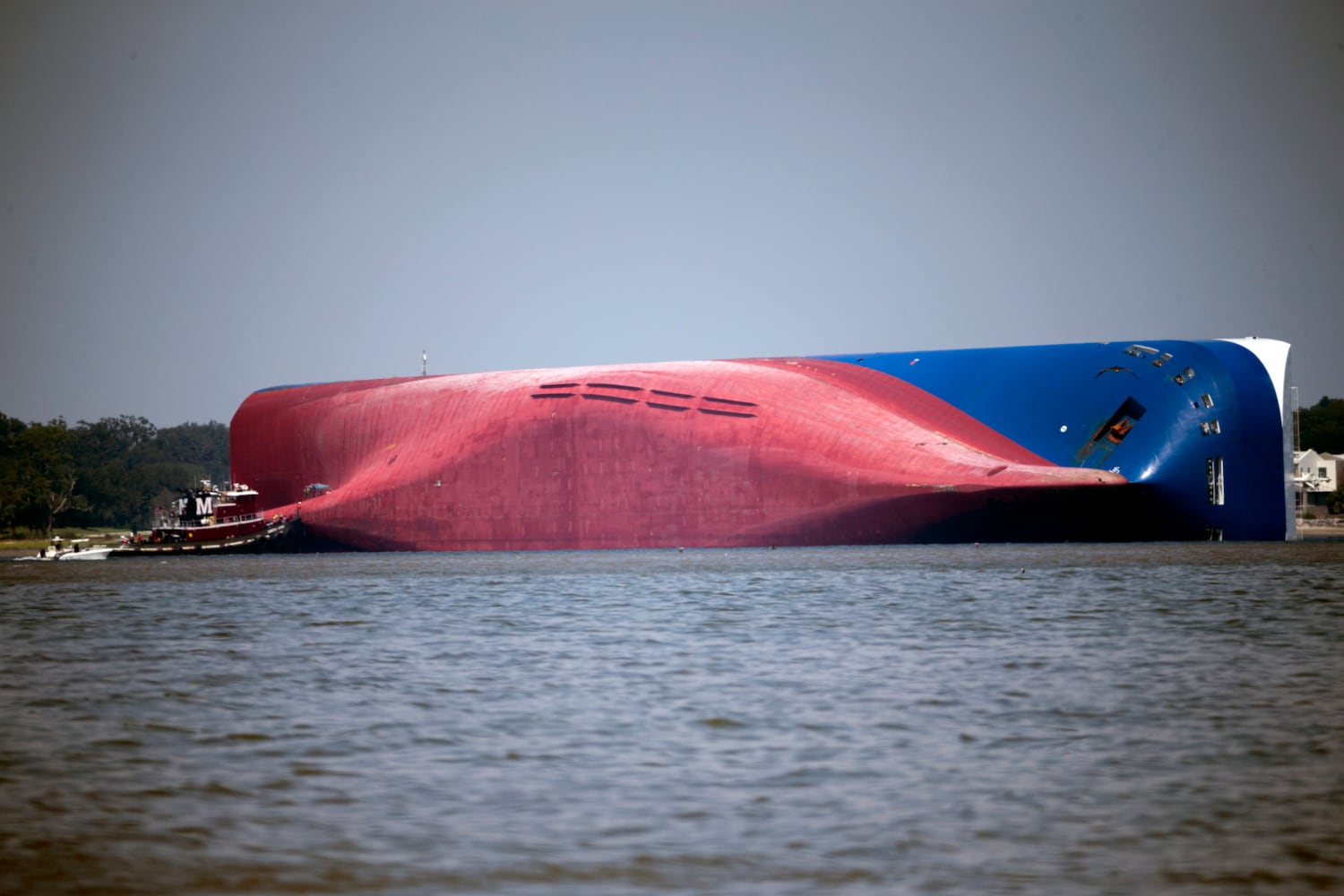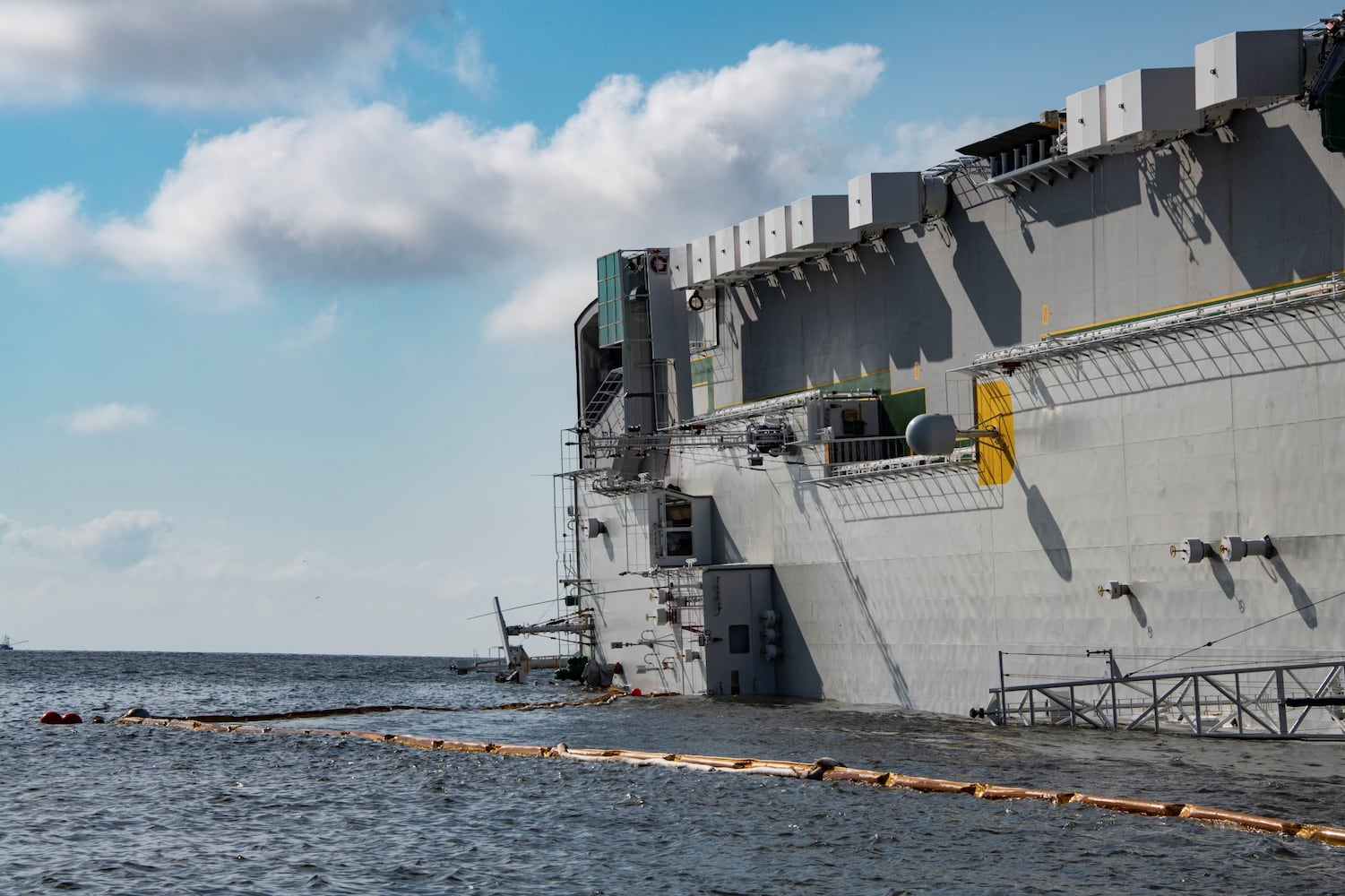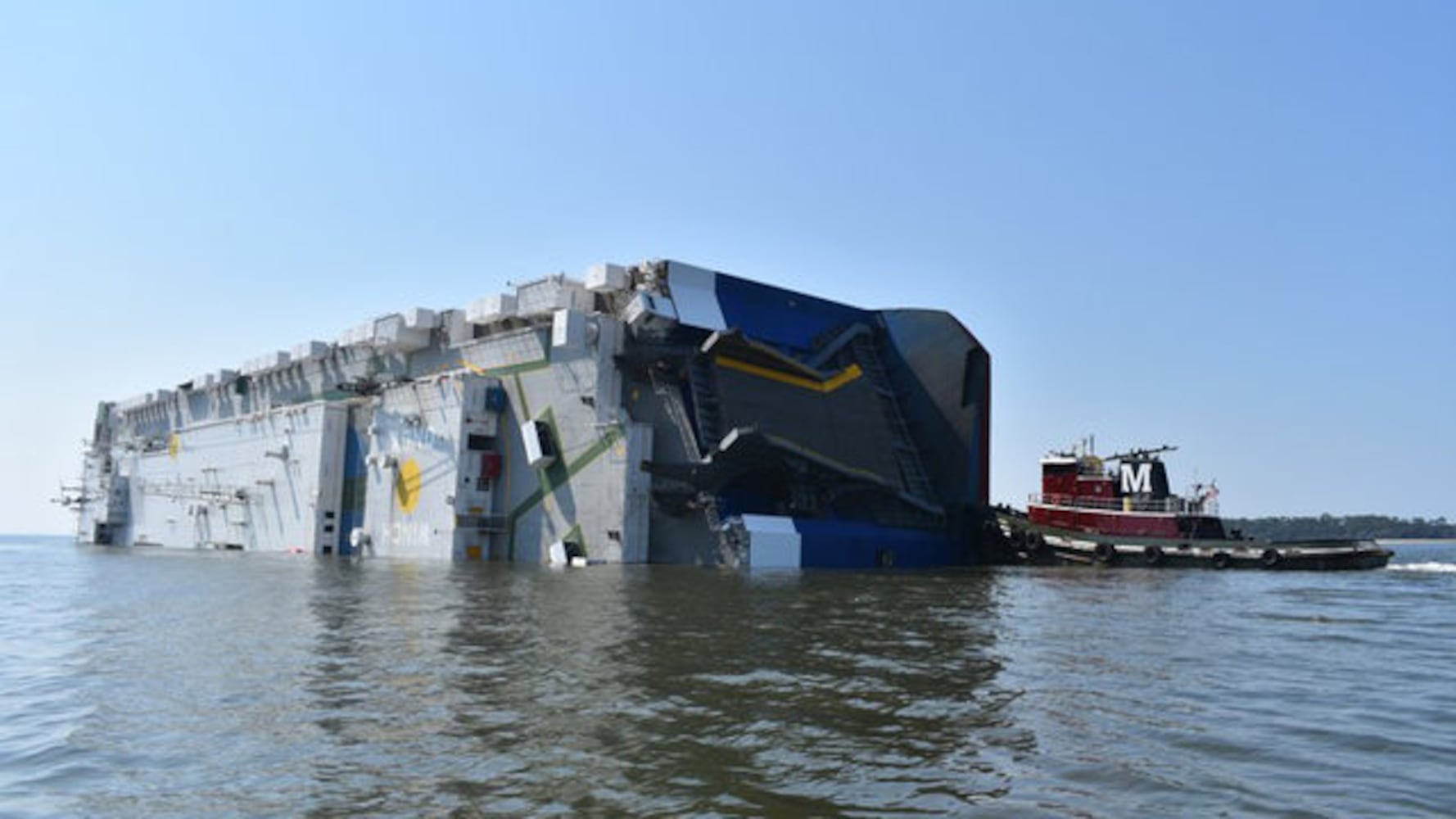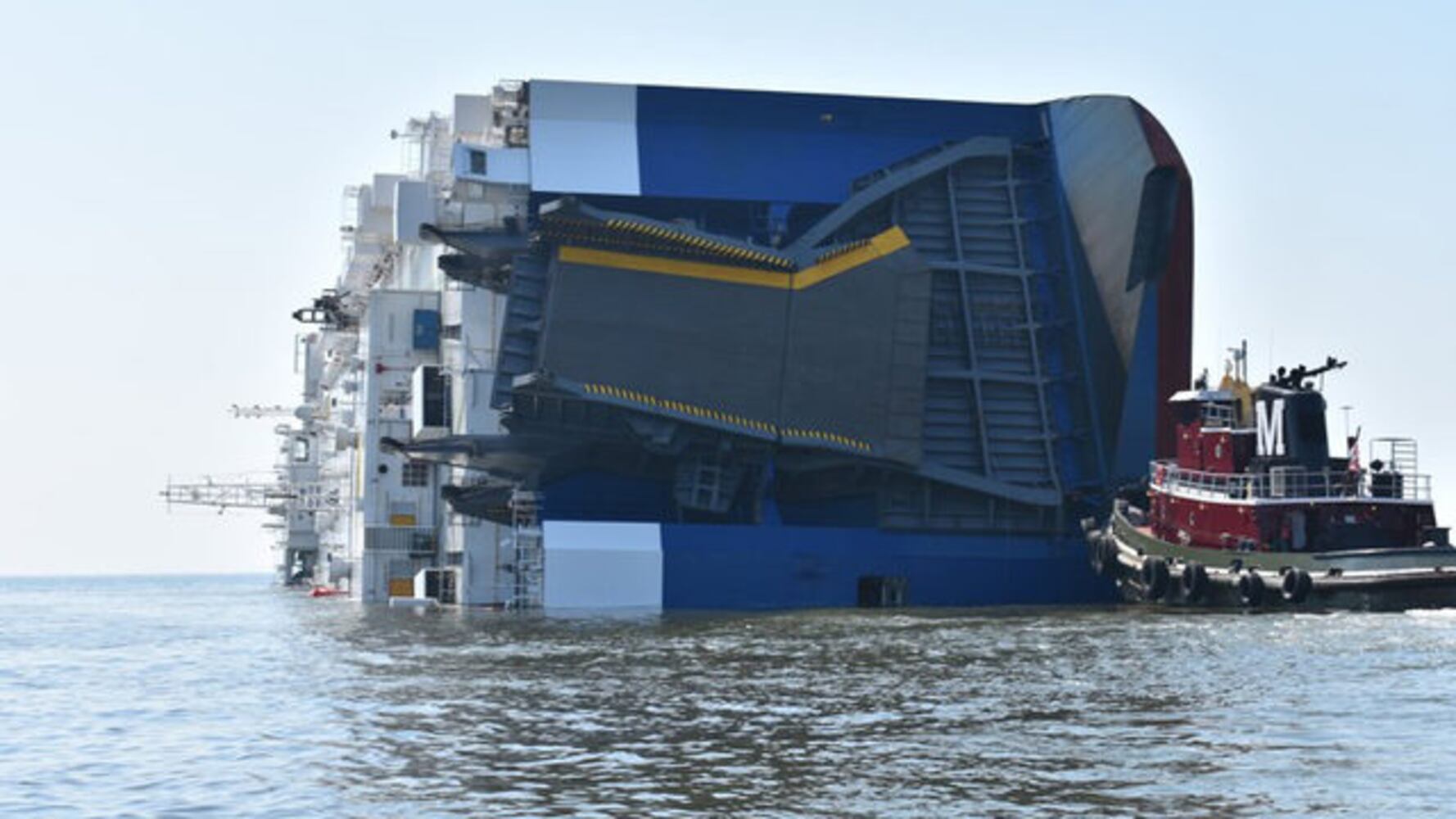Environmental response teams are in overdrive this week cleaning up the largest oil spill yet from the Golden Ray shipwreck off Georgia’s coast.
The leak occurred Friday as wreckage was being removed from a section of the Golden Ray, a South Korean automobile carrier that capsized on Sept. 8, 2019, shortly after leaving the Port of Brunswick. Demolition work to remove the shipwreck in eight giant chunks began in November. About half the ship remains partially submerged off St. Simons Island.
The ship has been periodically leaking oil ever since it capsized.
On Saturday, crews deployed oil skimmers, sorbents and other equipment designed to mitigate the latest oil spill, officials from the state Department of Natural Resources said in a news release. At least 70 people were on hand Tuesday to help with the cleanup, and additional crews were expected soon.
U.S. Coast Guard Petty Officer Michael Himes, spokesman for the disaster response, couldn’t say specifically how much oil was discharged, but more than 35,000 pounds of oily sand had been collected as of Monday morning, The Current reported.
Environmentalists continue to express concerns about the potential impacts along Georgia’s coast.
Susan Inman, a coastal advocate with the environmental nonprofit One Hundred Miles, suggested the grounded cargo ship could turn out to be an enduring disaster for the state, The Current reported.
Inman said an estimated 44,000 gallons of oil were still on board the ship in late 2019, when more than 300,000 gallons of an oil-and-water mixture were removed from the ship.
The latest spill happened as crews dismantled the sixth section of the shipwreck. The ship was immediately corralled with an environmental protection barrier that trapped the oil on the surface of the water. But as the tide fell, the oil seeped through, washing into the marshes, rock and beach sand along St. Simons Island, The Current reported.
“There’s about two and a half miles of shoreline on St. Simons Island that has been impacted,” said Fletcher Sams, executive director of the Altamaha Riverkeeper environmental watchdog group. “Some areas heavier than others, but all pretty heavy.”
Georgia’s Coastal Health District has issued a warning to beachgoers to use their best judgment before getting in the water. The DNR’s “Healthy Beaches” map shows Georgia beaches near the oil spill under an advisory issued July 5 that suggests no swimming or wading in the water.
Plans for demolishing the Golden Ray have been interrupted by the coronavirus pandemic, hurricane seasons and equipment malfunctions.
In May, demolition was about halfway completed when a fire ignited while workers used cutting torches on the hull. No one was injured, but thick smoke poured from the wreck for hours before boats pumping seawater through water cannons extinguished the flames.
Removal of the Golden Ray is on track to be the most expensive ship salvage operation in history, according to First Coast News.
Once section six is removed from the water, crews will have to cut the two remaining sections apart so they can also be removed and hauled away. Completing these steps could take five to 15 weeks or longer, Himes said.
Atlanta Journal-Constitution staff writer ArLuther Lee and Kayla Guilliams, staff reporter with The Current, contributed to this story.
About the Author
Keep Reading
The Latest
Featured
